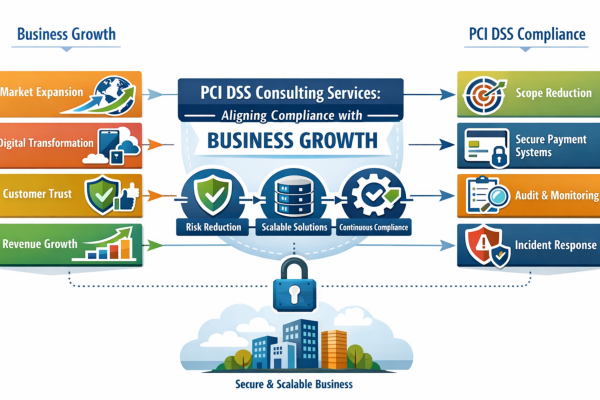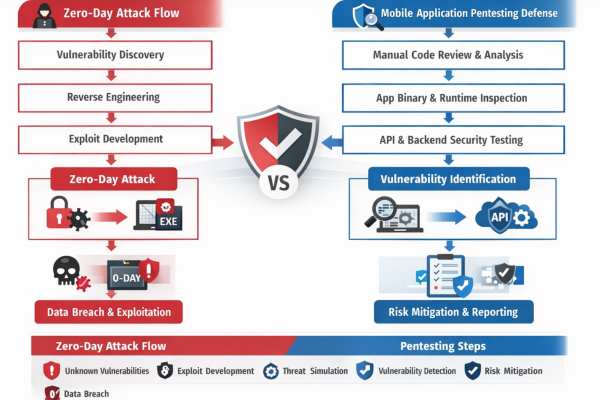Why More Companies Are Outsourcing ISO 27001 Implementation Services
In 2025, data security has become a top concern for organizations worldwide. Businesses of all sizes are focusing on protecting their information assets from growing cyber threats, legal penalties, and loss of customer trust. One of the most reliable ways to ensure information security is by adopting ISO 27001 – the internationally recognized standard for Information Security Management Systems (ISMS).
However, implementing this standard is not a simple task. That’s why more companies today are choosing to outsource ISO 27001 Implementation Services rather than managing it in-house. This trend is expected to grow even stronger as organizations aim to save time, reduce costs, and gain access to expert knowledge.
In this blog, we will explain what ISO 27001 is, what implementation services involve, why outsourcing is becoming the preferred choice in 2025, and how you can choose the right service provider.
What Is ISO 27001 and Why Is It Important?
ISO 27001 is an internationally accepted framework designed to help organizations establish, implement, manage, and continually improve their information security management systems. The goal is to protect three key aspects of information:
- Confidentiality: Ensuring that data is accessible only to authorized individuals.
- Integrity: Maintaining the accuracy and completeness of data.
- Availability: Ensuring data is available when needed.
Implementing ISO 27001 helps businesses manage risks like data breaches, phishing attacks, system outages, and insider threats. It also improves customer trust, supports compliance with regulations like GDPR, HIPAA, and PCI-DSS, and gives organizations a competitive edge.
What Are ISO 27001 Implementation Services?
ISO 27001 Implementation Services are professional services offered by consultants or firms that specialize in helping organizations achieve ISO 27001 certification. These services cover all stages of implementation, such as:
- Conducting a gap analysis to identify areas where the organization does not meet ISO 27001 requirements.
- Assessing risks and identifying potential threats and vulnerabilities to information assets.
- Creating policies and procedures for security, access control, incident management, and more.
- Training staff so they understand their roles in maintaining information security.
- Preparing for internal and external audits.
- Offering ongoing support to help maintain and improve the ISMS after certification.
Outsourcing these services allows companies to benefit from the provider’s experience, tools, and best practices.
Why Are Companies Outsourcing ISO 27001 Implementation in 2025?
In 2025, businesses are increasingly outsourcing ISO 27001 Implementation Services. Here’s why:
1. Shortage of In-House Experts
ISO 27001 is highly specialized. Implementing it requires knowledge of risk assessment, data protection, IT infrastructure, legal requirements, and cybersecurity practices. Many companies do not have employees with this level of expertise.
Recruiting and training new staff can be time-consuming and costly. Moreover, because information security is constantly evolving, in-house teams must stay updated with changes in standards and threats, which adds more burden.
Outsourcing gives companies immediate access to certified professionals with years of experience. These experts are already familiar with industry requirements and understand how to tailor the ISO 27001 framework to different business types.
2. Faster and More Efficient Implementation
ISO 27001 implementation typically involves a complex and detailed process, including documentation, risk treatment planning, and creating controls. When done internally, this can take many months or even years.
Outsourcing allows businesses to complete the process much faster. Service providers follow structured methods that they’ve refined through previous projects. They know which steps to prioritize, how to avoid common mistakes, and how to meet audit requirements quickly.
This efficiency allows organizations to become ISO 27001 certified in less time, which is especially useful when they need certification for client contracts or regulatory compliance.
3. Cost-Effective Compared to In-House Teams
Many companies assume that handling implementation internally will save money. In reality, this approach often becomes more expensive. Costs include:
Hiring new staff
Paying for training and certifications
Buying tools or software
Allocating time from senior management
Potential delays and rework
Outsourcing ISO 27001 Implementation Services helps companies control costs. They only pay for the services they need, and avoid hidden costs related to inefficiency or errors. Most service providers offer flexible packages for small, medium, and large businesses.
In 2025, cost-efficiency is a top priority, making outsourcing an attractive option.
4. Access to Industry-Leading Tools and Templates
Experienced ISO 27001 consultants often use ready-made tools, templates, and checklists that are aligned with the latest ISO guidelines. These may include:
Risk assessment tools
Statement of Applicability templates
Policy document templates
Internal audit checklists
Incident response forms
These tools save time, reduce errors, and ensure consistency in documentation. When companies outsource implementation, they get immediate access to these resources without having to create them from scratch.
5. Long-Term Compliance and Continuous Improvement
Getting ISO 27001 certified is just the beginning. Organizations must undergo surveillance audits, conduct regular reviews, and improve their ISMS over time to maintain certification.
Outsourcing firms often provide managed services, including:
Periodic risk reassessments
Security awareness training
Annual internal audits
Policy updates
Incident response planning
These services help businesses maintain their ISO 27001 certification and reduce the risk of non-compliance or security incidents over time.
6. Scalability and Flexibility
In a fast-changing business environment, companies often go through growth, restructuring, or new regulatory challenges. ISO requirements may evolve along with these changes.
Outsourced implementation partners offer the flexibility to scale their services as the organization grows. For example, if a company expands to new regions or launches new IT systems, the ISO provider can help update the ISMS accordingly.
This scalability ensures that ISO 27001 practices remain aligned with the organization’s current state, without overburdening internal teams.
7. Ensuring Industry and Legal Compliance
Many industries now face strict legal and regulatory requirements related to data privacy, cybersecurity, and operational resilience. These include:
GDPR in Europe
HIPAA in healthcare
CCPA in California
NIST in government contracting
Outsourcing ISO 27001 Implementation Services ensures your ISMS is designed with these regulations in mind. Experienced consultants understand the overlap between ISO 27001 and legal requirements and can help businesses build systems that meet both sets of obligations.
8. Allows Focus on Core Business Activities
Building an ISMS from scratch can take months of meetings, document writing, audits, and follow-ups. For small and medium-sized businesses especially, this can distract from essential work like sales, product development, or customer service.
When companies outsource, they free up internal teams to focus on their core goals. This leads to better productivity and overall business performance. Management also gains peace of mind knowing that compliance and security are in professional hands.
How to Choose the Right ISO 27001 Implementation Services Provider
Choosing the right outsourcing partner is critical to your success. Here’s how to make a smart decision:
1. Verify Their Experience
Ask how many ISO 27001 projects they’ve completed. Do they work with companies in your industry? Are their consultants certified (e.g., ISO 27001 Lead Implementers or Auditors)?
2. Request a Customized Plan
Avoid providers offering generic templates. A good consultant will understand your business and build a tailored implementation roadmap.
3. Ask About Support After Certification
The best firms don’t disappear after the audit. Ask if they offer annual check-ins, internal audits, and re-certification help.
4. Evaluate Communication Style
Make sure the provider explains things clearly and responds quickly. You’ll be working with them closely, so communication is key.
5. Read Reviews and Testimonials
Look for customer feedback on their website, Google, or platforms like Clutch. This helps you gauge reliability and service quality.
What Happens During the Implementation Process?
When outsourcing ISO 27001 Implementation Services, you can expect a process like this:
- Initial Consultation – Define goals and understand your business structure.
- Gap Analysis – Identify what’s missing compared to ISO 27001 requirements.
- Risk Assessment – Evaluate threats, vulnerabilities, and their impact.
- Policy and Control Development – Draft information security policies, procedures, and controls.
- Training and Awareness – Train staff on their roles in the ISMS.
- Internal Audit Preparation – Conduct trial audits to prepare for the certification audit.
- Certification Support – Work with a certification body and assist during the audit.
- Ongoing Compliance – Offer post-certification services like monitoring and updates.
ISO 27001 Trends to Watch in 2025
Here are a few key trends driving the outsourcing boom:
1. Remote and Hybrid Work
Companies must protect data accessed from home, coworking spaces, and public networks. This increases the complexity of ISMS design, making expert help essential.
2. Increased Demand for Cyber Insurance
Insurance companies often require businesses to demonstrate compliance with ISO 27001 or equivalent standards. Outsourcing speeds up the process and ensures proper documentation.
3. Integration with Other ISO Standards
Companies often combine ISO 27001 with standards like ISO 9001 (quality management) or ISO 22301 (business continuity). Outsourced providers are skilled at managing such integrated systems.
4. Use of AI and Automation in ISMS
Modern implementation providers use AI-powered risk assessment, document automation, and audit tracking. These tools enhance speed, accuracy, and consistency.
Conclusion
Outsourcing ISO 27001 Implementation Services is no longer just an option—it’s becoming a strategic decision for businesses in 2025. With cyber threats rising, regulations tightening, and skilled professionals in short supply, outsourcing offers a practical way to meet high security standards.
From saving time and money to gaining access to expert tools and long-term support, the benefits of outsourcing are clear. Whether your company is small, mid-sized, or enterprise-level, working with an experienced implementation partner can make your journey to ISO 27001 certification smoother and more successful.
Author







